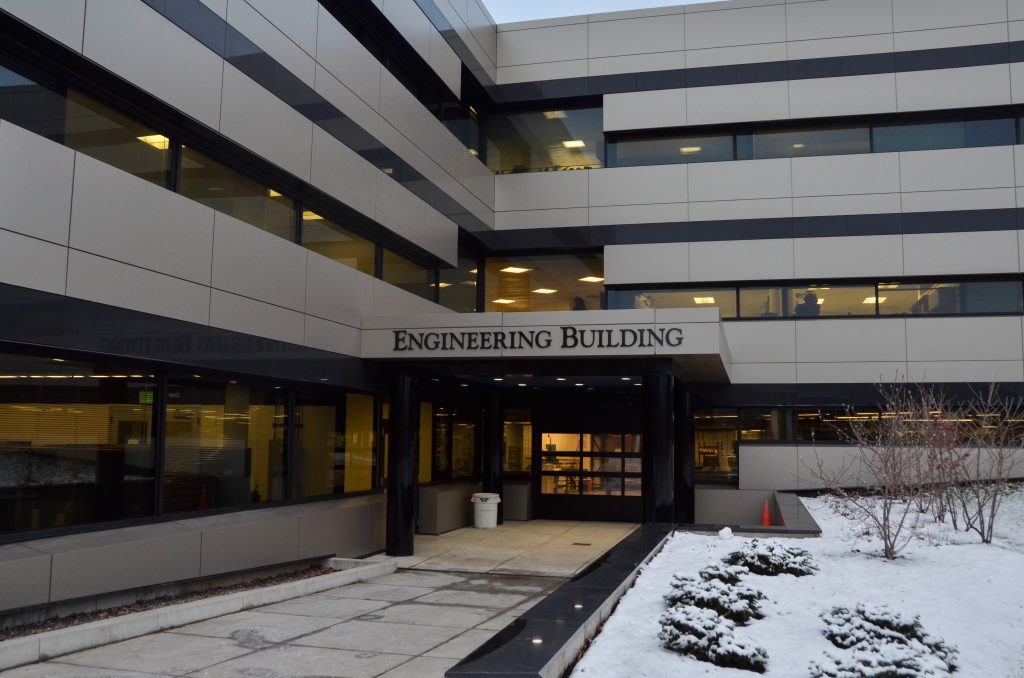Nearly $1.2 million in National Science Foundation funding has been awarded to Binghamton University for an initiative that recruits students for careers in STEM education.
The initiative, “Preparing Prospective Secondary Mathematics Educators through a Teacher Education Program Grounded in Community, Equity and Inclusion,” plans to train 24 4+1 mathematics majors to be middle and high school teachers over the next five years. Focused on supporting underprivileged school districts, it plans to address teacher shortages and inequities in STEM. The grant, announced by U.S. Sens. Chuck Schumer and Kirsten Gillibrand, will be used to award scholarships from the Robert Noyce Teacher Scholarship Program, which provides grants to higher education institutions to support training for STEM majors to enter the education field.
“Having a good teacher makes a world of difference for our students, and this nearly $1.2 million in federal funding for [BU] will go the extra mile to ensure we can fill the gap in STEM teaching jobs for Southern Tier communities,” Schumer said.
Stemming from a partnership between local school districts, the Endwell Master Teacher Program, the University’s department for mathematics and statistics and the department for teaching, learning and educational leadership, the initiative will create a mentorship program to foster engagement with community schools and support the 24 scholarship recipients. A new course will train students to provide after-school STEM tutoring for middle and high school students.
It will also address equity and diversity concerns in master’s programs for secondary mathematics education. By implementing strategies like increasing local school engagement and addressing biases, the initiative hopes to meet both students’ and schools’ needs.
To recruit students, the researchers aim to work with undergraduate advising, the Center for Civic Engagement and the Fleishman Center for Career and Professional Development to share information about the Noyce scholarship program. The initiative will focus on recruiting mathematics majors and education minors, and its leaders plan to visit the required MATH 330 course to present information about the scholarship. Additionally, they will host a workshop every fall semester with local teachers to inform education minors about the scholarship and potential career opportunities in secondary mathematics.
“Our multiple approaches will attend to those who may or may not have previously considered a career as a secondary mathematics teacher and will provide a greater probability of recruiting the proposed number of diverse and academically strong Noyce recipients,” wrote Amber Simpson, an associate professor in the department of teaching, learning and educational leadership, the lead researcher for the grant and a co-assistant director for the Institute for Justice and Well-Being: Advancing Equity through Community Schools.
The scholarship provides several tiers of higher education grants to train future STEM educators. To receive a grant, the scholarship requires institutions to focus on supporting high-need school districts. The University received a Track 1 grant for scholarships and stipends, which will be provided to students working in local secondary schools.
The initiative was announced amid a national teacher shortage, with demand for teachers outpacing the supply of new educators. High turnover rates and stagnating wages are significant factors in the shortage — a teacher in 2023 made eight percent less than the average worker’s wages. For STEM teachers, this shortage is more profound, as careers in education often pay much less than other STEM careers. Simpson said the University will work with Southern Tier schools to address the shortage and provide resources for these students.
“We built upon many of the good things already happening in the department of teaching, learning and educational leadership, as well as building upon the partnerships we have with local school districts,” she wrote.



